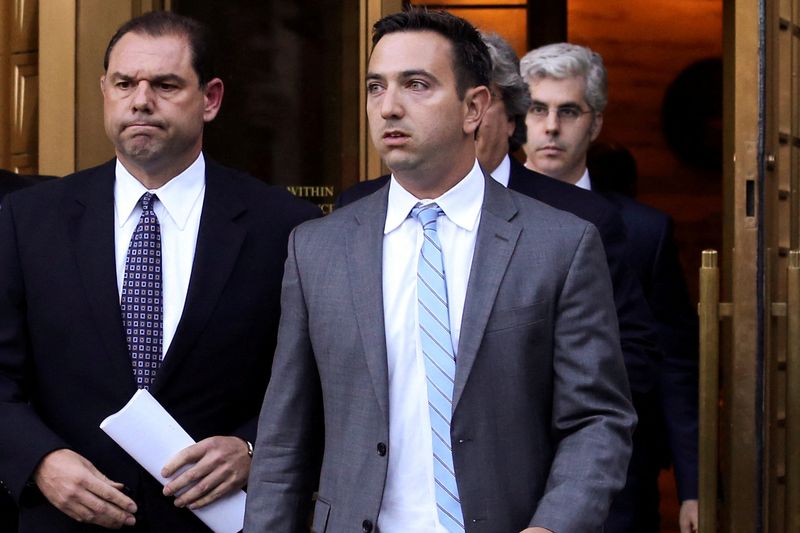Corruption case in New York in court
2022.11.27 07:17
[ad_1]

Corruption case in New York in court
Budrigannews.com – A former aide to Democratic former New York Governor Andrew Cuomo and a businessman’s efforts to overturn bribery and fraud convictions are two of two cases that the Supreme Court of the United States will consider on Monday. These cases could make it more difficult to prosecute public corruption.
The appeals of Joseph Percoco and Louis Ciminelli, who were charged in related cases in 2016 as part of a corruption crackdown by federal prosecutors in Manhattan centered on the halls of the state capital of Albany, are scheduled to receive arguments from the justices.
Three co-defendants charged in corruption and fraud cases involving state contracts worth hundreds of millions of dollars during Cuomo’s tenure will also be affected by the final rulings by the justices, which are expected by the end of June.
According to Jaimie Nawaday, a former federal prosecutor who currently works at the Seward & Kissel law firm, rulings favoring the defendants may prevent prosecutors from charging a variety of cases as wire frauds and limit their ability to pursue certain classes of bribery cases.
According to Nawaday, “prosecutors could face a restriction of their ability to bring charges based on novel and expansive readings of the fraud statutes.”
In political corruption cases, the Supreme Court has restricted prosecutors in recent years. One example of this was its decision in 2020 to overturn the convictions of two aides of Republican former New Jersey Governor Chris Christie in connection with the political scandal known as “Bridgegate.
“The court in 2016 additionally tossed out conservative previous Virginia Lead representative Robert McDonnell’s pay off conviction in one more decision restricting the kinds of direct that can warrant arraignment as bad.
Preet Bharara, the then-Manhattan U.S. Attorney, brought the charges against Percoco and Ciminelli in 2016. Bharara also pursued corruption cases against high-ranking state lawmakers, including former Assembly Speaker Sheldon Silver.
Even though Bharara was not charged, the 2016 case cast a shadow over Cuomo’s administration.In 2021, Cuomo resigned due to a separate sexual harassment scandal.
In 2018, Percoco, a former aide to Cuomo, was found guilty of bribery for offering to help two corporate clients of an Albany lobbyist named Todd Howe pursue state benefits and business in exchange for $315,000 in bribes.
According to the prosecution, Percoco referred to the payments as “ziti,” a term used by characters in the mobster television series “The Sopranos.”In 2018, Percoco received a six-year prison term.
Howe admitted his guilt and gave investigators his cooperation.Along with real estate developer executive Steven Aiello, who was accused by prosecutors of orchestrating bribes for Percoco, Percoco was found guilty.
Percoco’s lawyers argued that the fact that he was managing Cuomo’s 2014 re-election campaign rather than serving in government as the governor’s executive deputy secretary meant that he could not be convicted of bribery at the time of the alleged actions.
His attorneys argue that Percoco’s status as a private citizen indicates that he was a lobbyist rather than a crook because he accepted money to persuade the government to act, and that upholding his conviction would bring criminal charges against the lobbying industry as a whole.
In 2021, the New York-based 2nd U.S. Circuit Court of Appeals upheld his conviction, concluding that Percoco owed a duty to the public because he had a guaranteed job in Cuomo’s administration following his election and had exercised sufficient influence over government decision-making in the interim.
Ciminelli’s case focused on Howe’s work as a consultant hired by Cuomo to help manage the “Buffalo Billion,” Cuomo’s $1 billion revitalization plan for the Buffalo, New York, area.
According to the prosecution, executives from two companies, including Ciminelli, who owned a construction company, worked together with Howe and Alain Kaloyeros, who managed the application process for the Buffalo Billion grant, to rig bids so that contracts went to their companies.
Along with Kaloyeros, the former president of State University of New York’s Polytechnic Institute, developers Joseph Gerardi and Aiello, and Ciminelli, Ciminelli was found guilty at trial.Additionally, they have requested that the Supreme Court overturn their convictions.
Gerardi received sentences of two and a half years, Ciminelli received two and a half years, Aiello received three years, and Kaloyeros received three and a half years.After the Supreme Court agreed to hear the case, a judge let all four of them out on bail in July.
Prosecutors tried to fit their actions into the framework of the wire fraud statute, which criminalizes schemes to fraudulently obtain money or property, according to defense lawyers.
The prosecution relied on the “right to control” legal theory of wire fraud, which states that the victim had an interest in economically valuable information rather than money.
The victim, according to the prosecution, was Fort Schuyler Management Corp., a division of SUNY Polytechnic Institute that managed the contracting process and was, according to the government, unable to make fully informed decisions.
According to Ciminelli’s attorneys, such intangible information could not be considered a “property fraud” under the precedents of the Supreme Court.
[ad_2]








